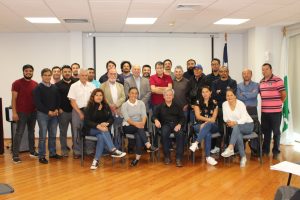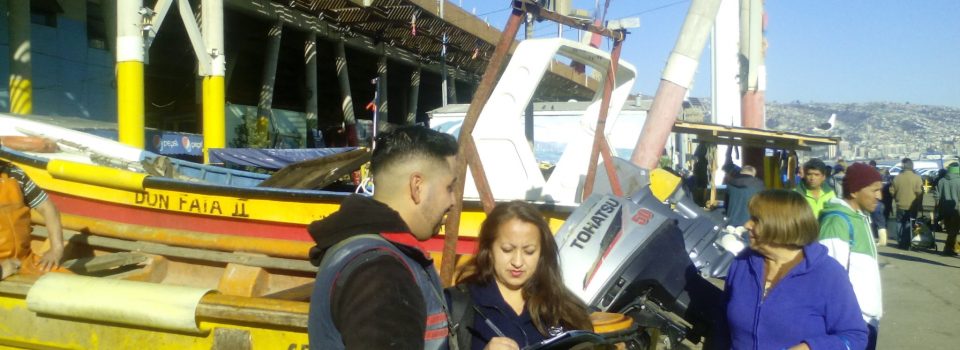IFOP developed a course for Scientific Observers
March 26th, 2019
On March 13rd and 14th , in Valparaíso, within the annual activities of ASIPA Project – Fisheries Monitoring highly migratory resources framework. Biological fishing aspects 2019, was held Scientific Observers Course.
Scientific Observers are technicians and professionals trained to collect data on fishing activities and biological samples of caught species, on board of vessels or at landing ports. Based on this information, IFOP scientists can generate knowledge and provide scientific advice required by fishing or aquaculture institutions of the country; in particular, the one that is required by the Fisheries and Aquaculture Undersecretariat, for our fisheries sustainable management.
Patricio Barría researcher and project leader referred about this course, “It is an activity that we are carrying out every year, with the purpose that people who work in the project can take knowledge of the program objectives and scientific and technical challenges, as well as, data and information requirements. In addition to emphasizing that fisheries highly migratory resources monitoring is crucial to be able to advise sectoral authority for fisheries regulation and normalization, based on a scientifically validated monitoring system, for which it is important to have quality assurance standards. quality.
Researchers and scientific observers reported on previous years activities. In this instance, results were analyzed, technical errors were identified and the modifications and changes introduced were explained. In addition, it is a space in which researchers explain data requirements for 2019, they are informed about sampling operational modifications plans, data collection protocols and forms and collection and biological samples treatment.
The Scientific Observers 2019 course is a collective instance where each project member has the opportunity to communicate to the team about their progress and difficulties in fulfilling their responsibilities. In this way, they explain to the group the work and adaptations they have made, with their successes and failures “.
Project researcher Hernán Miranda referred to this activity emphasizing the peculiarity that both Scientific Observers, as well as investigators, directors or invited personalities participate like exhibitors within the course. Which makes this a real discussion workshop about difficulties and solutions experienced during the data collection. The synergy that we seek to produce among participants occurs in an almost natural way and we feel part of the co-construction of generated knowledge. In this context we must add that traceability or data collection traceability is an attitude and field Observers permanent activity , which shows responsibility and commitment degree with which they assume assigned tasks; still and in spite of difficulties that often exist in the field. Attitude that gives us confidence in collected information quality.
Oscar Guzmán, IFOP council president, highlighted “This type of activities is fundamental to developing the entire data collection system, it seems to me that it is an indispensable instance for all involved people in data collection from project managers to Scientific Observers, all agree on what needs to be done, considering in this way the number of errors in data collection is reduced and there is a better understanding of all interested parties “
